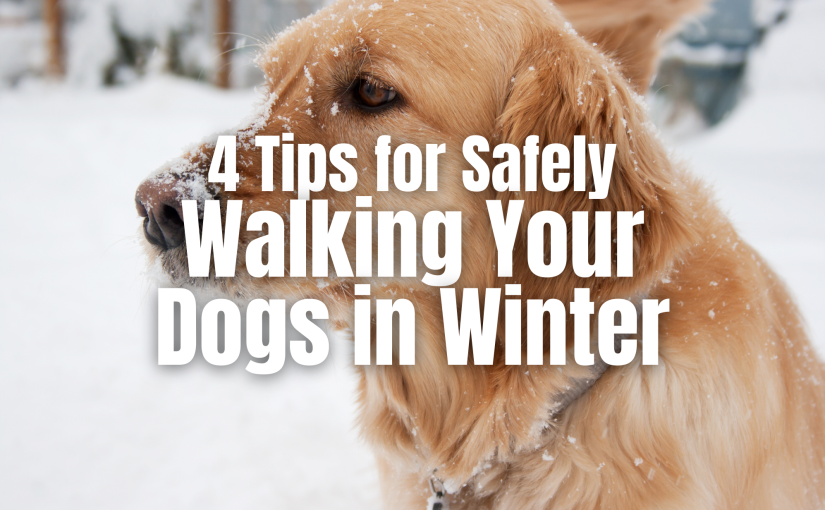Cold winter temperatures may have you wanting to stay indoors as much as possible and limit going outside. However if you’re a dog owner, you’d know dogs require daily walks and this may become challenging in the wintertime. Luckily, there are some things you can do to keep your dog safe from the elements.
Below, we listed 4 ways to make walking your dogs in the wintertime more enjoyable:
Bundle up
Dogs aren’t immune to the dangers of cold weather and can be put at risk of getting hypothermia or frostbite. It’s a common misconception that a dog’s fur coat will keep them warm in cold weather, and this may be true, but to an extent (depending on the outside temperature and your dog’s size and breed). So to be on the safe side, bundle up and put a sweater or jacket on your dog.
Dog booties
If there’s salt on the ground, it can cause major irritation, cracking, and potential chemical burns on your dog’s paws. So wearing booties can provide adequate protection from salt and harmful chemicals. Look for booties that are waterproof, reflective, provide good traction, and fit comfortably on your dog. And if your dog doesn’t like the sensation of wearing booties, you may need to have your dog practice wearing booties around the home first before using them on a walk.
Apply a protective balm
If your dog flat out refuses to wear booties, using a protective balm, such as Musher’s Secret Paw Protection Wax, works just as well and serves as a barrier to prevent chapping and keep your dog’s paws feeling soft and hydrated. A paw wax can also protect your dog from the elements and helps prevent ice and snow from building up between their paw pads. And be sure to give your dog’s paws a good rinse once you return home.
Shorten your walks
If you live in a wintry area and the temperature simply gets too cold, you may want to consider shortening your walks to only 15 minutes at a time. You know your dog best, so be sure to pay attention and if there are signs of shivering, whining, or any odd behaviors, it may be time to head back home. Use your own judgment to determine whether the temperature permits for safe walks. And remember that if it’s too cold for you, it’s almost certainly too cold for your dog and the two of you are better off snuggling warmly indoors.



